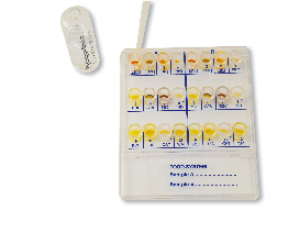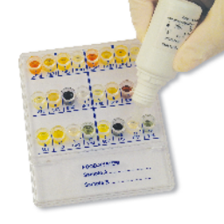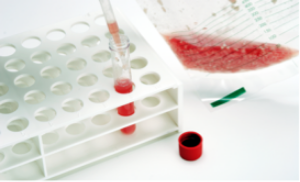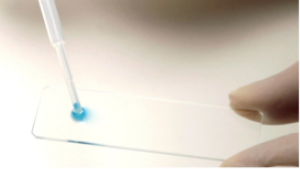Liofilchem Food System, identification of pathogenic microorganisms from foodstuff
The Liofilchem® FOOD SYSTEM (ref. 71680) is a 12 wells panel containing biochemical substrata for the detection and presumptive identification of pathogenic microorganisms from foodstuff in just 18-24 hours.
The FOOD SYSTEM is conveniently configured to test two samples in the same panel.


The FOOD SYSTEM delivers the simultaneous detection and presumptive identification of:
- Salmonella spp.
- Proteus /Providencia spp.
- Pseudomonas spp.
- Staphylococcus aureus
- Escherichia coli
- Bacillus cereus
- Listeria spp.
- yeasts and moulds.
The system is inoculated with a suspension of food sample and incubated at 36 °C for 18-24 hours.
The tests for detection and presumptive identification of the microorganisms present in the sample are interpreted by evaluating the color change in the wells.


Biochemical, immunoserological and microscopic confirmation tests following screening can be performed by taking a drop of culture broth from the well of the microorganism to be confirmed.
Just like all the Liofilchem® microbiological identification systems, the FOOD SYSTEM has the great benefits of:
- performing simultaneous microbiological screening of several microorganisms in one compact panel,
- reducing costs in labor and laboratory consumables,
- requiring no complex lab instruments because of its extraordinary ease of use.
Bibliography
- Difco & BBL Manual, Manual of Microbiological Culture Media2003.
- ISO 6579:2002. Horizontal method for the detection of Salmonella spp.
- ISO 6888-2:1999. Enumeration of coagulase-positive staphylococci (Staphylococcus aureus and other species). - Technique that uses Rabbit Plasma Fibrinogen (RPF) Agar Medium.
- ISO 7932:2004. Horizontal method for the enumeration of presumptive Bacillus cereus.
- ISO 11290:2002. Horizontal method for the detection and enumeration of Listeria monocytogenes.
Validated in accordance with ISO 16140
Microbiology of food and animal feeding stuffs
Protocol for the validation of alternative methods
Download the Validation Certificate
Liofilchem Food System validation
The Validation was carried out by The Istituto Zooprofilattico Sperimentale dell'Abruzzo e del Molise "Giuseppe Caporale", a public health institute which operates as a technical and scientific arm of the state and the Abruzzo and Molise Italian Regions, performing analytical work for the public veterinary services and providing the technical and scientific collaboration necessary to enable them to carry out their functions in the field of veterinary public health. The Institute offers high added-value services backed up by in-depth knowledge and innovation in the areas of animal health, veterinary public health and environmental protection, in the interests of safeguarding animal and human health. The World Health Organization (WHO), the Food and Agriculture Organization of the United Nations (FAO) and the World Organization for Animal Health (OIE) have assigned the Institute the role of Collaboration Centre and Reference Laboratory in specific spheres of activity.
National Data Bank for Livestock Registration
Managing the National Data Bank for the Registration of cattle, sheep and goats, pigs and poultry is linked to the Institute's international role as an OIE Reference Laboratory for Contagious Bovine Pleuropneumonia (CBPP), Brucellosis and Bluetongue, and to its role as an OIE Collaboration Centre for veterinary training, epidemiology, food safety and animal welfare.
Quality
All the Institute's activities have been constantly certified and subjected to rigorous quality control since 1995, when the Institute became the first public veterinary body in Italy to be certified in accordance with international quality standards for performing laboratory tests in the chemical, microbiological, virological and serological fields. The accreditation obtained from SINAL (the National System for Laboratory Accreditation) over three years ago, on the date required by the European Community, now also covers the Avezzano, Pescara, Lanciano, Campobasso and Isernia centres, and the Termoli Regional Centre for Fishing and Aquaculture. In addition to these certifications, the Institute uses its own testing methods and procedures, which are nationally and internationally recognized, and takes part in inter-laboratory circuits for chemical, microbiological, serological, virological and molecular biology tests.

